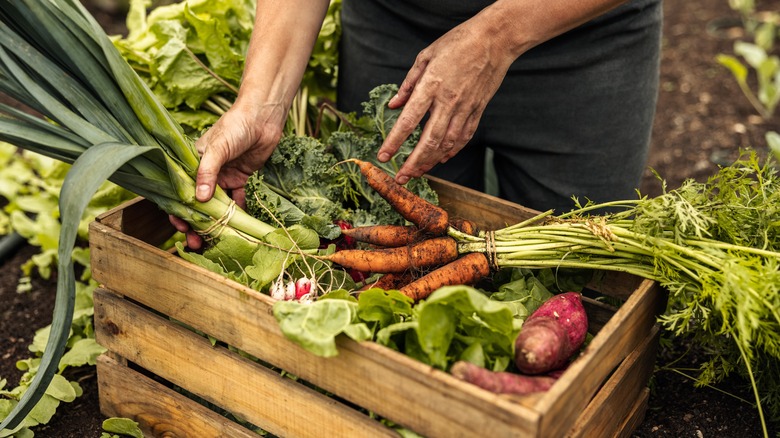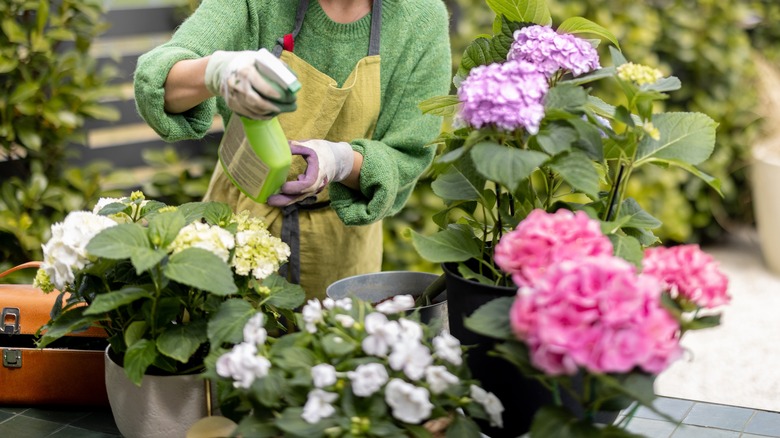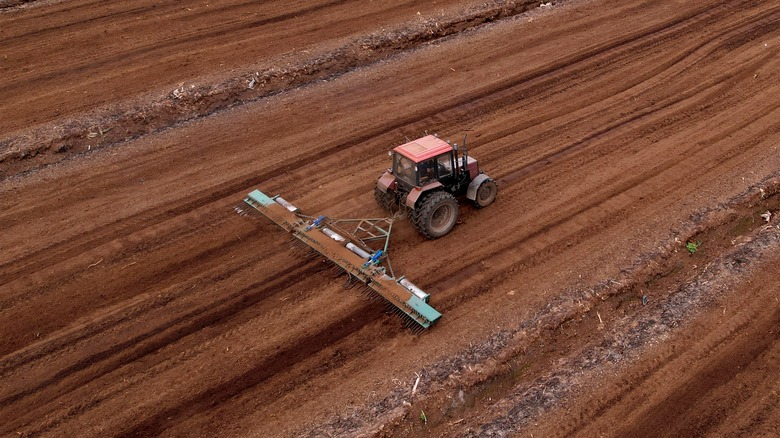Organic Gardening Isn't As Good For The Environment As You May Think
Although organic gardening has many benefits, not all organic practices and products are good for the ecosystem. It's kind of like eating organic food. For example, organic ice cream might not have some of the same ingredients as conventional options, but that does not qualify it as a health food. Since the goal of organic gardening is to grow the cleanest food in a way that supports a healthy environment, it is important to know what is actually a good practice and what to avoid.
Among the most important aspects of organic gardening is that there is no overuse of synthetic herbicides and pesticides. When you grow your own produce, you decide what goes on your plants and into your soil. Sure, it's easier to use a powerful pesticide to get rid of squash bugs, but have you read the warnings on those labels? They generally caution against using these products around children and pets and waiting a certain number of days before harvesting from the plant.
That said, transitioning to gardening organically can still be a good idea, but you need to think about the products you're using — here's what you should consider.
Pesticides
Just because produce is organic does not mean that it is free of pesticides; it simply means that only pesticides derived from nature have been used. Although these products are free of synthetic ingredients, they must still be used with caution. Broad-spectrum pesticides are indiscriminate — they will kill any insect, whether it is a pest or beneficial. For example, if your okra is overrun with aphids, it's tempting to purchase an organic pesticide at the garden center and douse your plant to get rid of the pests. The problem is that when a bee comes to enjoy the nectar of the open blooms on that plant, they also consume the poison and die. The same is true for other beneficial insects, including butterflies and ladybugs.
You can control many pests can with non-chemical methods. Although they often come in droves, aphids can safely be removed from plants with a heavy spray of water from a hose-end sprayer using a "jet" or similar setting. It may take a few tries, but there's no harm done to the environment. If you must use an organic pesticide, read the instructions carefully and always avoid using it on or around blooms.
Non-sustainable practices
There is some debate about whether the harvesting of peat moss is a sustainable practice. Although it is considered a renewable resource because it does slowly develop, it only grows at a rate of about 2 inches every 100 years, according to Rural Sprout. The main problem environmentalists have with the harvesting of peat moss is that it takes thousands of years for peatlands to recover completely from harvesting, causing permanent damage to that ecosystem. Gardeners love to use peat in garden beds and containers because it retains moisture while allowing excess water to drain out. More environmentally friendly options include coconut coir, rice hulls, and composted leaves.
Using excess water to keep your plants alive during the hot, dry months of summer is also inefficient and a drain on resources. By using a drip irrigation system rather than an overhead sprinkler, you can save money and water since evaporation is greatly reduced. Keeping your garden mulched also helps retain moisture while keeping the soil cooler. Although an organic garden and an environmentally-friendly garden are not mutually exclusive, making a few small changes in your practices can ensure your organic garden is safe for you and the environment.


